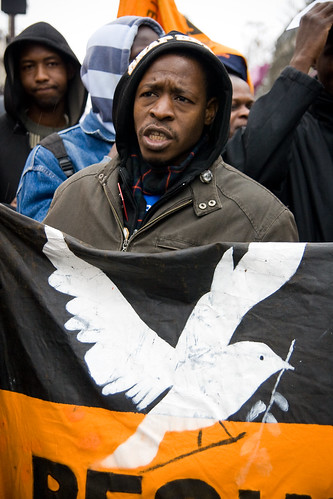Italy faced the problem of immigration quite recently, in the 1970s; before Italy had been a country where people emigrated from, especially after World War II.
Since the end of the 20th century and the beginning of the 21st century the rate of immigrants in Italy has been increasing year by year. In the 1990s the Italian government tried to solve the problem of illegal immigration by holding amnesties, which allowed illegal immigrants to apply for Italian citizenship and not get punished for having been there illegally. This reduced the number of illegal workers and, thus, black economy, but it did not solve the problem! Quite the opposite! This measure attracted even more immigrants who could easily come to Italy and be legalized!
From a geographical viewpoint, Italy’s position is strategic. In the centre of the Mediterranean and with over 8,000 kilometres of coast, Italy is a “door” to Europe for African people (Moroccans, Tunisians, Algerians) – though the trip across the Mediterranean often turns into an odyssey. According to ISTAT, on December 31, 2006 there were 2.938.922 immigrants in Italy (4,97%). Moroccans are the most numerous, followed by Albanians, Romanians, Tunisians and Senegalese.
Undoubtedly, immigration is a cultural and economic resource too. Many migrants have entered the labour market: in the North-East, they mainly work in factories in almost regular positions; in the South, non-EU people are mostly employed in seasonal jobs and in the underground economy, particularly in the agriculture and building industry. Many immigrant workers, especially women from Eastern Europe, are employed to do the housework in our families or to help old or disabled people.
Unfortunately, illegal immigration has brought to Italy new social problems too: many illegal immigrants are involved in criminal activities such as drug-pushing, prostitution and petty crime, especially in big cities. This has led to intolerance, racism and violence between Italians and immigrants and to an increase both in the number of workers employed in the black-market and in the money spent by the State to keep immigrants in prison or in the “Centri di permanenza temporanea”, centres where illegal immigrants are held before going back home.
The various immigration laws have never been able to regulate the situation of illegal immigrants: the first attempt was at the beginning of the 1990s with the so-called 'Martelli law', which aimed “to plan migratory flows into Italy in collaboration with the immigrants' countries of origin”. In 1998, the centre-left government issued the so-called 'Turco-Napolitano law' which established the procedures for the deportation of illegal immigrants who, once arrested, could be deported only after being judged by a magistrate. After the magistrate issued an order of deportation, they had two weeks to appeal against the decision, but immigrants often used this time to go underground and out of sight. In 2002, the centre-right government enacted the ‘Bossi-Fini Law’; it states that illegal immigrants must leave the country within five days after the arrest, and during this time they are held under the control of the police. Non-EU immigrants can come to Italy only if they have a ‘contratto di soggiorno’, i.e. a contract of dependent employment providing for accommodation and the payment of travel expenses to return to their homeland. When the contract expires, the immigrant worker should repatriate. The truth is that forced repatriation is not always carried out as it should be! Always in 2002 a decree-law provided for the regularisation of irregular immigrants employed as domestic workers or home-helper, and dependent workers involved in other kinds of subordinate employment. All regularised immigrant workers received a residence permit which lasted till the deadline of the employment contract, but in any case no longer than two years.
These days immigration has been a hot election topic, as the title of this article says. The spread of gypsy camps on city outskirts and the increase of crimes committed by illegal immigrants worry Italians a lot. That’s why immigration is a central issue among the right- and left-wing parties, which have opposing positions as always. Given his coalition with Lega Nord (Northern League), Berlusconi promises to deport all illegal immigrants and “crack down on gypsy camps and centres linked to the preaching of Muslim fundamentalism", while Walter Veltroni, the centre-left candidate, is for integration and wants to increase the duration of legal immigrants' residency permits and, at the same time, “to guarantee that expulsion orders for illegal immigrants are really carried out”.
Sources:
http://www-pub.naz.edu:9000/~cmnewell/
http://www.eurofound.europa.eu/eiro/2002/09/feature/it0209103f.htm




Nessun commento:
Posta un commento